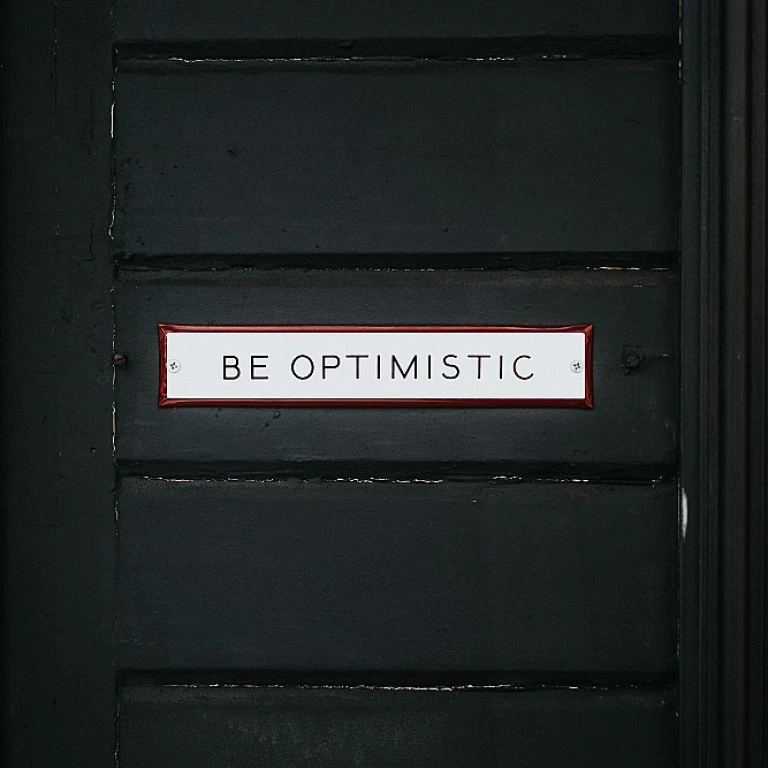Understanding the Importance of Skill Development
The Role of Skill Development in Personal and Professional Growth
Skill development serves as a cornerstone for not just enhancing your career, but also for cultivating a grounded confidence in life. It involves identifying and refining the abilities that not only add value to your work but also help you feel more confident about your choices and performance. Continuous learning in this arena can open doors to leadership development and even decision making roles that require a delicate balance of technical prowess and soft skills.
Building expertise does more than just elevate your professional standing; it also lifts your personal growth. When you focus on skill development, you are investing in your ability to communicate effectively with your team members and take bold steps in your leadership style. This can significantly boost your self-esteem, enabling you to tackle complex challenges head-on. Importantly, knowing that you have the right skills at your disposal helps you combat negative thoughts by building a bank of successful experiences that you can draw upon in uncertain times.
For those looking to develop confidence and emerge as daring leaders, the journey of skill development doesn't have to feel overwhelming. It's about taking incremental steps that build lasting confidence. Setting achievable goals, seeking constructive feedback, and giving yourself the time to master new deliberative techniques are key strategies. Each checkpoint you meet contributes to a stronger belief in your own abilities and a more positive approach to professional hurdles.
When done right, skill development goes beyond just ticking boxes; it acts as a catalyst for perpetual growth. Allow yourself the time to explore and master these skills, and you'll find it elevates both personal satisfaction and your professional trajectory. For more insights on how skill development can enhance your job performance, further reading is available to help you navigate this transformative journey.
Identifying Key Skills for Your Career Path
Pinpointing Essential Abilities for Career Growth
Understanding which skills are vital for your career path is foundational for both personal and professional growth. Identifying key skills involves a balance of self-reflection, market research, and feedback from peers and mentors. Here’s how you can determine which skills to focus on:- Self-Assessment: Start by evaluating your own strengths and areas that need improvement. Recognize the skills that make you feel confident and those that need more weight in your personal development plan.
- Analyze Job Requirements: Review job descriptions and industry standards to determine the skills that are currently in demand within your field. Pay attention to both technical abilities and soft skills like communication skills and leadership development.
- Feedback and Support: Gather constructive feedback from team members, supervisors, and mentors. Their insights can help you identify hidden strengths and opportunities for improvement, increasing your grounded confidence.
- Set Achievable Goals: Realistic goals can help in building confidence incrementally. Start with short-term objectives that progressively challenge your comfort zone, supporting a positive learning experience.
- Continuous Learning: Embrace continuous learning and trust in the process. Whether it’s daring leadership skills or public speaking, invest time in learning new things that enhance your belief in your abilities.
Strategies for Effective Skill Acquisition
Proven Approaches to Skill Enhancement for Career Growth
Skill acquisition is an evolving journey that involves multiple strategies and methods. To help people unlock their full potential and optimize their strengths, it's crucial to adopt effective approaches tailored to individual needs. Developing new skills not only boosts competence but also cultivates a strong sense of confidence in the work environment.
Start by setting achievable goals based on your career path and personal aspirations. Identifying specific objectives can provide a clear roadmap, ensuring a strategic approach to skill acquisition. Focus on both soft skills, like communication and public speaking, and technical proficiencies that can elevate your leadership style and build trust within your team.
- Embrace Continuous Learning: The key to staying relevant in today's fast-paced workplace is embracing a mindset of continuous learning. This goes beyond formal education, encompassing informal methods such as online courses, workshops, and seminars that can introduce new concepts and technologies efficiently.
- Seek Constructive Feedback: Collaborating with mentors and team members can provide valuable insights into your progress. Constructive feedback is essential for understanding your current skill level and identifying areas for improvement. It also helps counteract negative thoughts and reinforces grounded confidence.
- Step Out of Your Comfort Zone: In order to develop confidence and push boundaries, it's important to occasionally step out of your comfort zone. Whether it’s taking on a new role, volunteering for work projects, or practicing daring leadership, facing new challenges can lead to substantial personal and professional growth.
- Practice Decision-Making: Engaging in leadership development often involves honing your decision-making abilities. This skill is critical in building confidence and empowering team members, ultimately creating a positive work atmosphere and fostering unity.
By implementing these strategies, individuals can cultivate a positive mindset and build confidence while navigating their professional journeys. Remaining proactive and adaptable in your learning process is pivotal to success in an ever-changing workplace.
Overcoming Challenges in Skill Development
Addressing Obstacles to Enhance Skill Mastery
Embracing the journey of skill development is not without its challenges. To build confidence and truly excel, it's crucial to recognize and tackle the hurdles that can arise along the way. It's easy to feel overwhelmed by the weight of expectations, but overcoming these challenges can lead to grounded confidence and a more enriched learning experience.
One common obstacle is stepping outside of your comfort zone. Engaging in new experiences, like public speaking or taking on leadership development roles, can initially trigger negative thoughts or self-doubt. However, daring to take these first steps and stay committed to continuous learning fosters personal growth. Allow yourself to slowly become familiar with these scenarios to feel confident over time.
Additionally, it’s essential to acknowledge your current strengths and belief in your abilities as you pursue new skills. Leveraging your existing capabilities can help build a positive mindset tailored for growth. By setting achievable goals and celebrating small victories, you establish a foundation for sustained building confidence.
- Seek constructive feedback: Embrace input from mentors or team members to refine your approach. A fresh perspective can provide clarity and highlight areas for improvement, directly supporting leadership and communication skills.
- Engage in team dynamics: Work collaboratively with people at various levels within your organization. Observing different work styles and participating in team activities can boost your capacity for effective decision making and help improve overall work performance.
- Practicing patience: Understand that mastering new skills takes time. Stay committed to your development journey, maintaining trust in the process to boost your grounded confidence. Remember that even leadership figures like thought leaders emphasize the value of patience and perseverance.
Remember, obstacles are inevitable, but with determination and the right strategies, you can effectively navigate them. This will not only enhance your skill development but also foster a strong sense of confidence as you continue down your chosen career path.
Measuring Progress and Building Confidence
Tracking Growth and Sustaining Grounded Confidence
Measuring your progress in skill development is essential not only for tracking growth but also for boosting your confidence. When you set achievable goals, it provides a clear roadmap and a sense of direction, which helps in enhancing your belief in abilities.- Set Clear Milestones: Break down your learning journey into smaller, manageable milestones. Achieving these can feel rewarding and reinforce a positive mindset.
- Embrace Continuous Learning: Development doesn't stop at reaching certain goals. Embrace an ongoing journey by regularly updating your skills. This attitude can build confidence as you become more versatile in your field.
- Feedback as a Tool for Growth: Constructive feedback can be invaluable. It helps identify areas of improvement while also recognizing strengths, both of which are crucial for building confidence and leadership development.
Applying New Skills in Real-World Scenarios
Integrating Skills into Everyday Challenges
Applying newly acquired skills in real-world situations is essential to build confidence and hone your abilities. Engaging with practical scenarios helps solidify what you’ve learned, allowing you to tackle challenges more effectively. Adapting to Team DynamicsIncorporate your skills into team activities. This can include enhancing your communication skills or leadership development. By contributing to your team’s objectives, you'll build trust and strengthen team bonds. It’s an excellent way to navigate different work styles and leverage your strengths. Taking on New Responsibilities
Expand your comfort zone by volunteering for projects that demand your newfound skills. Whether it's a daring leadership role or a task requiring strong decision-making, stepping up invites constructive feedback and opportunities to boost confidence. Fostering a Culture of Continuous Learning
Maintain a mindset that embraces learning and personal growth. By setting achievable goals, you encourage a positive work environment that values growth. Remember, learning doesn’t stop. Grounded confidence comes from the belief in your abilities and the desire to always learn more. Effective Communication
Practice public speaking and other soft skills that enhance your interactions, making you more relatable and effective. This not only helps in feeling more confident but also in projecting a strong, positive presence among team members. Balancing Confidence with Humility
While it's essential to develop confidence, it is equally important to stay humble. Engage with team members constructively and courageously share insights while being open to feedback. This balanced approach helps in not only building confidence but also lasting leadership. Applying your skills consistently in these real-world scenarios ensures they become second nature, helping you feel confident and prepared to meet new challenges head-on.








